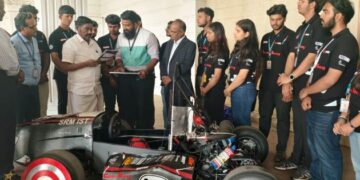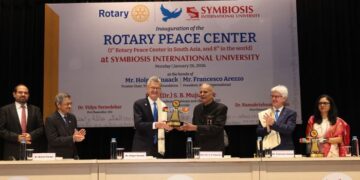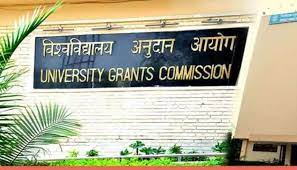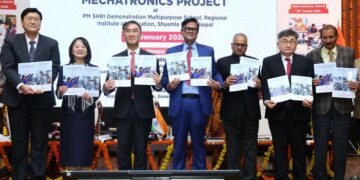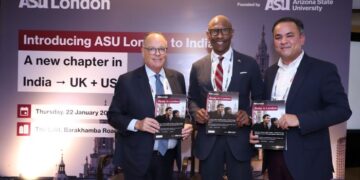In a statement DTF said that the draft talks about FDI in Higher Education and use of land as an asset to gain self-reliance. The Draft Guidelines on Institutional Development Plan (IDP) for Higher Educational Institutions is a clarion call for the recolonisation of the minds of Indians. It aims to do so by demolishing the public higher education system, undermining the gains made by the struggle for social justice through reservations and rolling back the hard-won collective rights of teachers.
First, this draft recommends for undergraduate courses a rise in the teacher-student ratio of (1:30) in Social Sciences, (1:25) in Sciences and (1:30) in Commerce/Management. This will lead to a massive reduction in the teaching workload as the existing teacher-student ratio is (1:18) across these disciplines. Further, there is no mention of any teacher-student ratio for Humanities. This will inevitably lead to a massive job loss for teachers and a sharp decline in the quality of education. The draft IDP thus moves in a direction opposite to what is desirable for quality. It may be noted that the desired teacher-student ratio in IITs is 1:10, even if this is not met in practice.
Second, this draft recommends that 50% of total faculty requirement is to be met by Contractual (tenure)/Visiting faculty from the Profession/Industry. This means firstly that a sizeable amount of teaching workload will remain variable and many existing teaching posts will remain non-permanent. It also implies further that half of the teachers left after the fall in the student teacher ratio will also be additionally displaced. This will imply a further fall in the quality of education as the critical faculties of these teachers will be made redundant by this anti- academic recommendation.
Third, this draft also recommends a separate cadre of teachers apart from the existing ones who will be known as “tenure-track” teachers. For these tenure-track teachers, the Draft Guidelines recommends that a “suitable probation” will be put in place to further “ensure excellence.” This clause about suitable “probation” in itself and especially when left to the interpretation of individual Higher Educational Institutions, implies greater exploitation of teachers. Further, what is the academic rationale for these teachers to have a probation period that is different (longer and more arduous no doubt) than the existing permanent teachers?
Fourth, the performance assessment for these tenure-track teachers will have “multiple parameters” to be “developed by each Higher Educational Institution according to the Draft Guidelines.” This expansive disarticulation of service conditions of teachers working in different institutions is a one-way street to a massive deterioration of the pay and working environment of teachers. In this proposed set up there will not be an apex body to govern higher education like the UGC. Each Higher Educational Institution will be “free” to put in place its own service conditions including “salary increases.” This is an open invitation for a race to the bottom both for quality of education and service conditions of teachers.
Fifth, the Draft Guidelines recommend the use of online courses/E-learning platforms for “reducing student numbers” in physical classes. This will not only significantly reduce the teaching workload in combination with Swayam/MOOCS and ABC schemes but will also be a death knell for a participative and quality teaching learning process.
Sixth, the Draft Guidelines argue for greater involvement of domestic private and foreign direct investment in higher education. This will put higher education out of the reach of the majority of students and reduce diversity among students and teachers. It also ignores universally validated proposition that only a public led higher education system is a guarantee for a sovereign development process.
The document does not make a distinction between public and private. In creates ambitious plans for universities in terms of land requirements, infrastructure and layouts without placing the responsibility on governments for the expansions. “We fear that these new markers may be used to close down many public funded HEIs and medium sized private universities, pushing education as business into the pockets of big corporates.”
The draft talks about FDI in Higher Education and use of land as an asset to gain self-reliance. The Draft Guidelines on Institutional Development Plan (IDP) for Higher Educational Institutions is a clarion call for the recolonisation of the minds of Indians. It aims to do so by demolishing the public higher education system, undermining the gains made by the struggle for social justice through reservations and rolling back the hard-won collective rights of teachers.
With near stagnant allocation to education sector, the Union Budget 2022 shows that the Government lacks the will to increase public spending in education. The Government is finding refuge in online education to increase the GER. Treating teachers as recurring costs, it wants to use informalisation of education as the model of education. DTF rejects these anti-academic Draft Guidelines .



